RedBull Basement Festival 2019
20.10.2019
One great idea I am not going to lie: when I first saw the ad on Facebook about the Basement Festival, I thought it was some really crazy party. It turned out to be even better. It was a well-spent Saturday, filled with known-to-be-influential keynote speakers and a full hour of start-up pitches. Arriving at the Volkshaus Zürich, we were welcomed with a stamp on our wrist and an invitation to go upstairs, where the start-up exhibition took place. We spent a good half hour there, checking out different inspiring projects and talking to its founders about their inspiration and journey. Quick summary: There were solar power enthusiasts, lifesavers, cognitive scientists, and professors. I’ll talk more about some of them later, in the start-up pitches section.
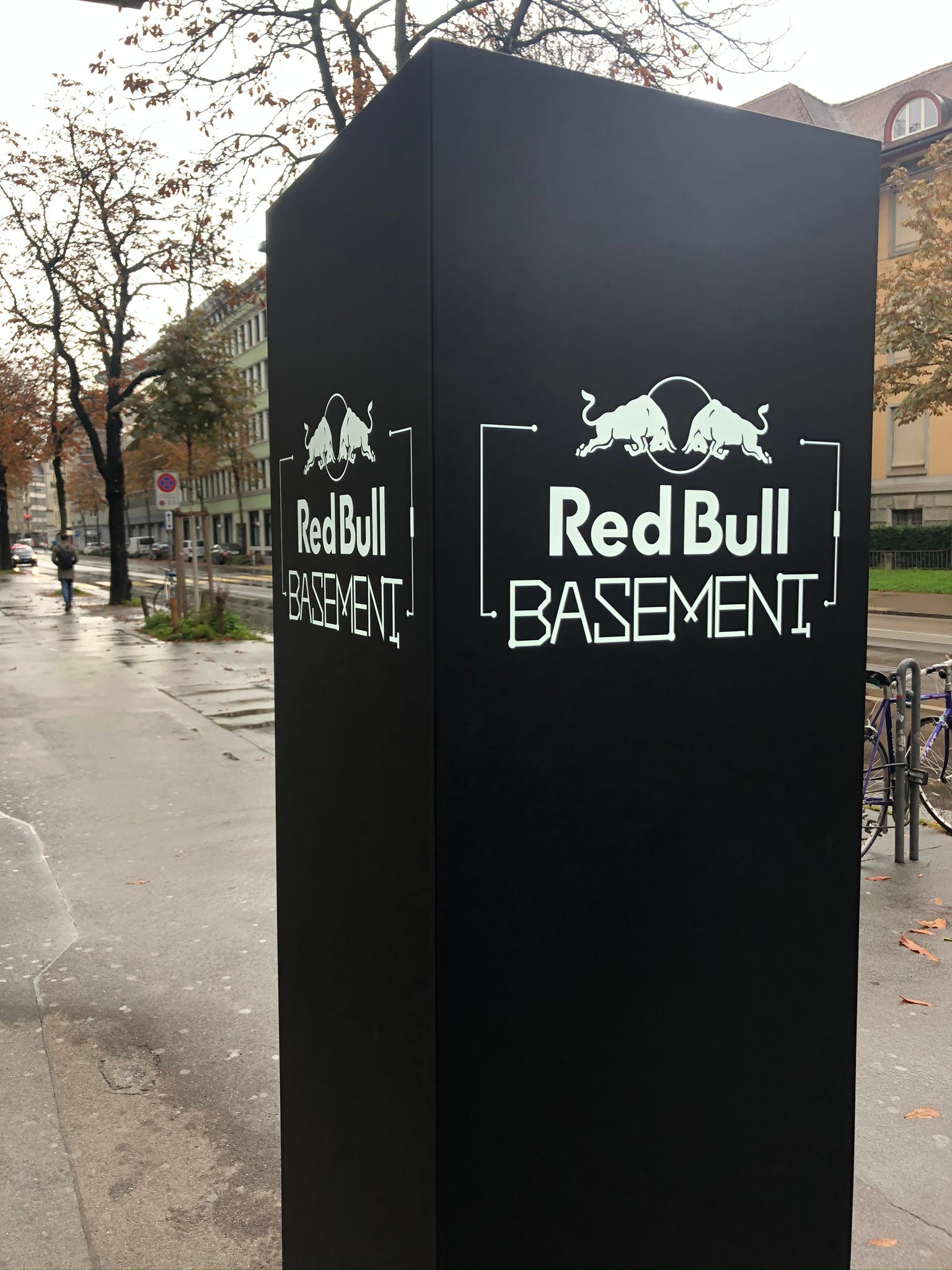
The Keynotes
Filled with excitement we went into the main hall, where they started pretty much on time and got going with the speeches right away. The first speaker to be welcomed on stage was Patrick Meier, founder of WeRobotics.
Decolonizing Robotics for Social Good
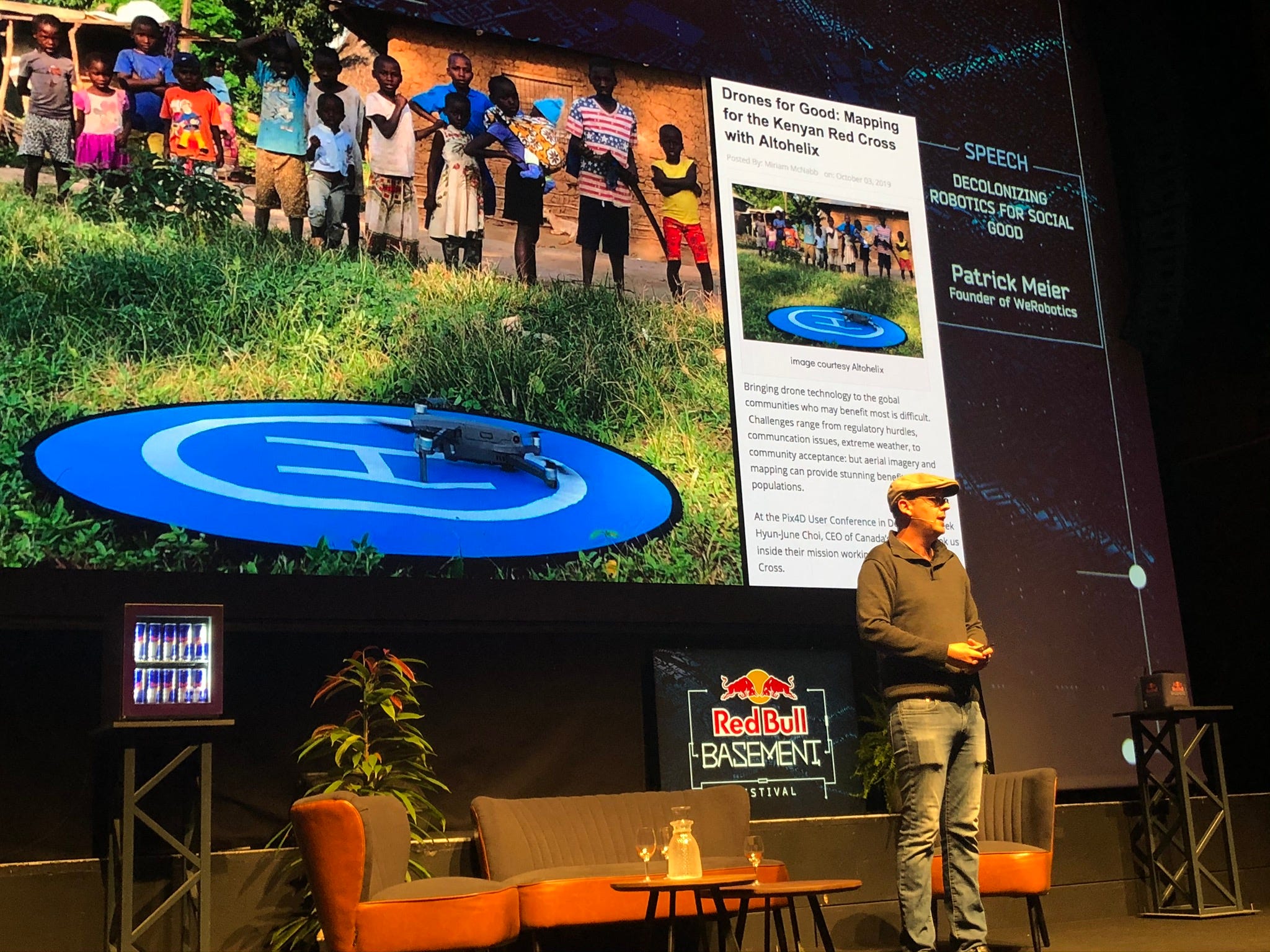
Patrick had a lot to say. He presented the things him and WeRobotics do in a way, that perfectly explains why. And it made sense! His vision is, to restore power to the locals and have trained drone pilots and manufacturers there, instead of having to fly in professionals from all over the world, which just doesn’t make sense. With WeRobotics he started to found and build FlyingLabs, they are different hubs all over the world in different areas where it is needed the most, and went on to train locals in drone manufacturing and flying. Since these drones mostly come with only a low effort to create, it is possible to get along with a minimum of resources, such as 3D printers and a small shed. This way locals don’t have to wait for professionals to arrive and can start to step in themselves. Projects and influences include shipping medicine in places where the only way to travel is a canoe, such as the Amazonas. Therefore it takes only 30min instead of 6 hours and there are no risks involved, especially at night. A nice purpose is also the deployment of Wolbachia in flooded areas, to assist with mosquito control. To summarize: His vision to restore power to the locals made a whole lot of sense to me and will be important advice for future generations of inventors.
Mosan: Protecting the Environment through Innovative Solutions
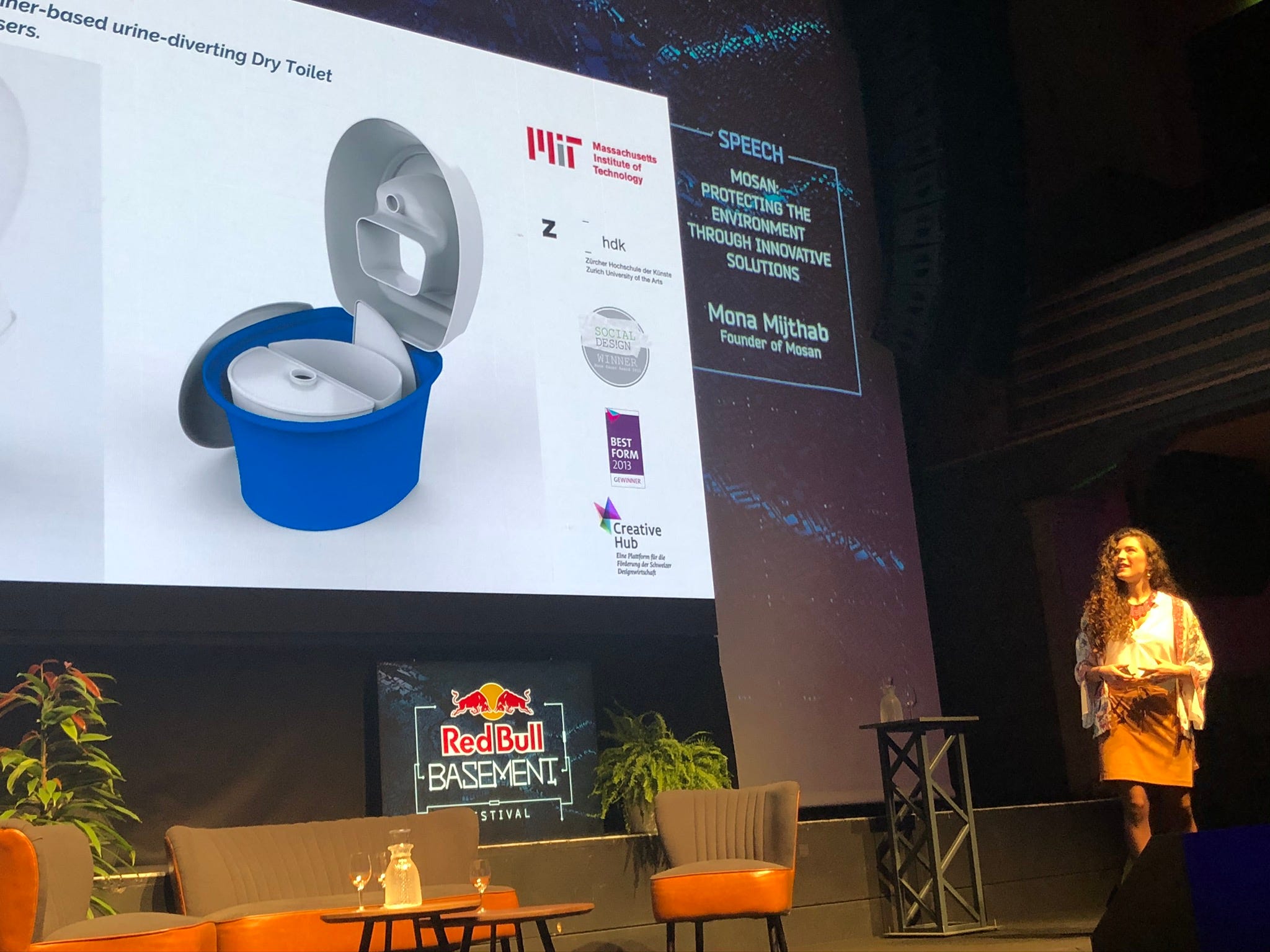 Mona explaining how the Mosan toilet works.
Mona explaining how the Mosan toilet works.
Next up on the list was Mona Mijhab, the founder of Mosan. You might have heard of Mosan, it is already widely deployed. At Mosan, they worked on a solution to use personal “waste”, in order to transform it into biochar, which is reusable in agriculture. Mona’s inspiration for this was a beautiful lake she visited, but she wasn’t able to swim in it since they estimated around 500Liters of urine to be going into the lake per second. Which is a very scary number. The process works like this: First, the Mosan toilet separates urine and feces. It stores them, using very good smell prevention, until the next time the Mosan collection site opens. Then, users are able to drop off their waste at said site, where it will be transported by locals to the next place. There, they transform everything into biochar that can be used in agriculture, and other goods that can be introduced to the market. Like this, the cycle closes, and they estimate people to be able to swim in the above-mentioned lake again by 2022. Mona’s keynote was despite her difficulties with the English language extremely good and totally already worth the festival ticket.
Digital Identities
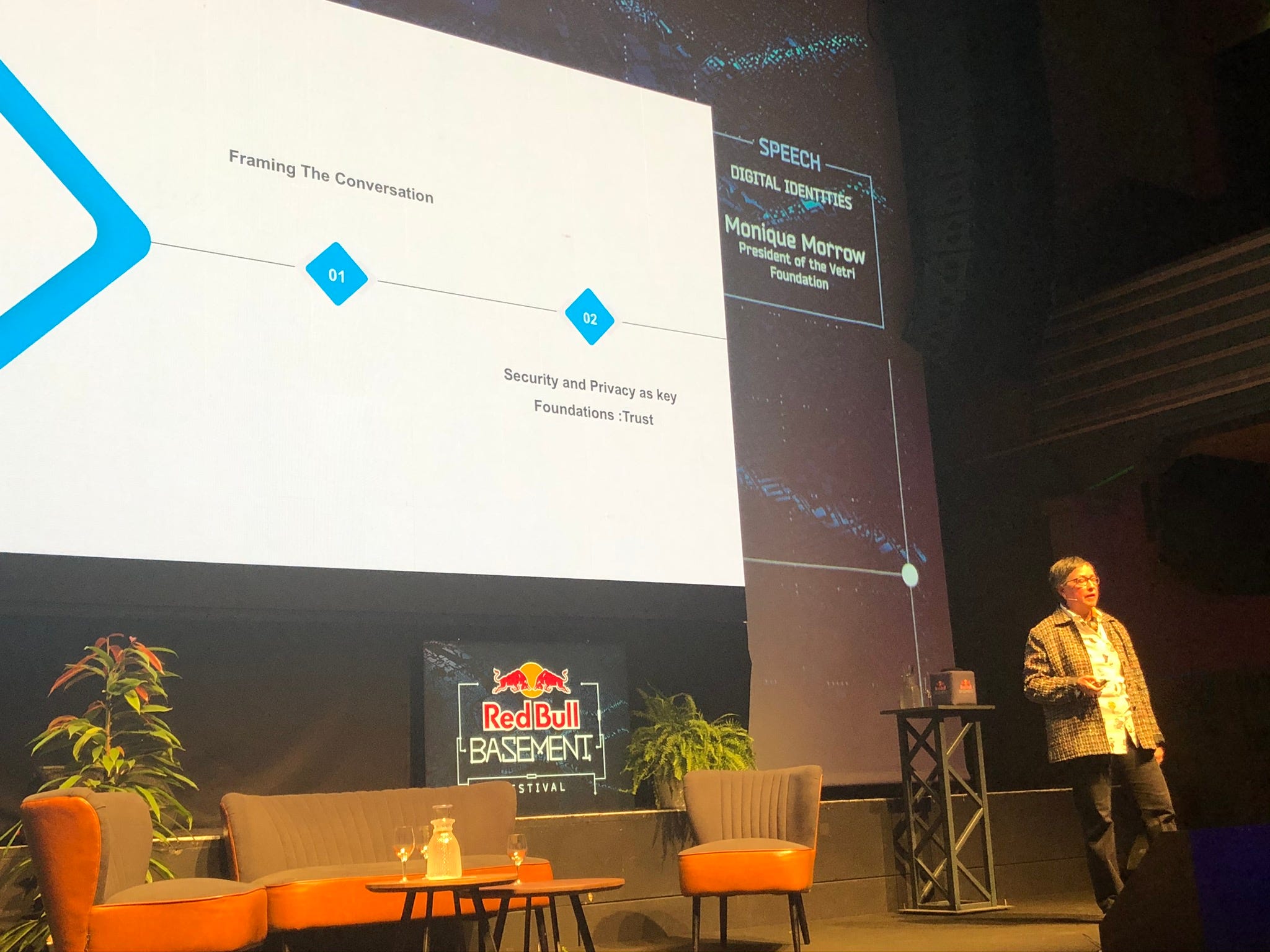
With Monique Morrow, the former CTO of Cisco and the president of the Vetri Foundation, we got to listen to a TED keynote speaker. Leading up to the panel discussion she told us all about data privacy and trust. She showed us frightening examples from China and their system of full control. She herself was once before the victim of a data breach at Swiss, targeting VIP clients and frequent flyers. Understandably she was furious that the only notice about it was a text message: There was no coupon or apology, no flyer miles or anything to reimburse the broken trust. She went on to talk a lot about the concept of self-sovereign identity (SSI) as the future of the connected world. It is an idea, that gives everyone the full control over his data, even on the internet. Where in the real world everyone has data such as insurance, birth certificate and more each represented by different cards, the goal is to bring the same form of control to the digital world. For me, the part of what she and the Vetri Foundation does was a component that went missing in the presentation, but it was nonetheless great as she is an obviously experienced woman with awesome presentation skills.
Discussion on Data Privacy
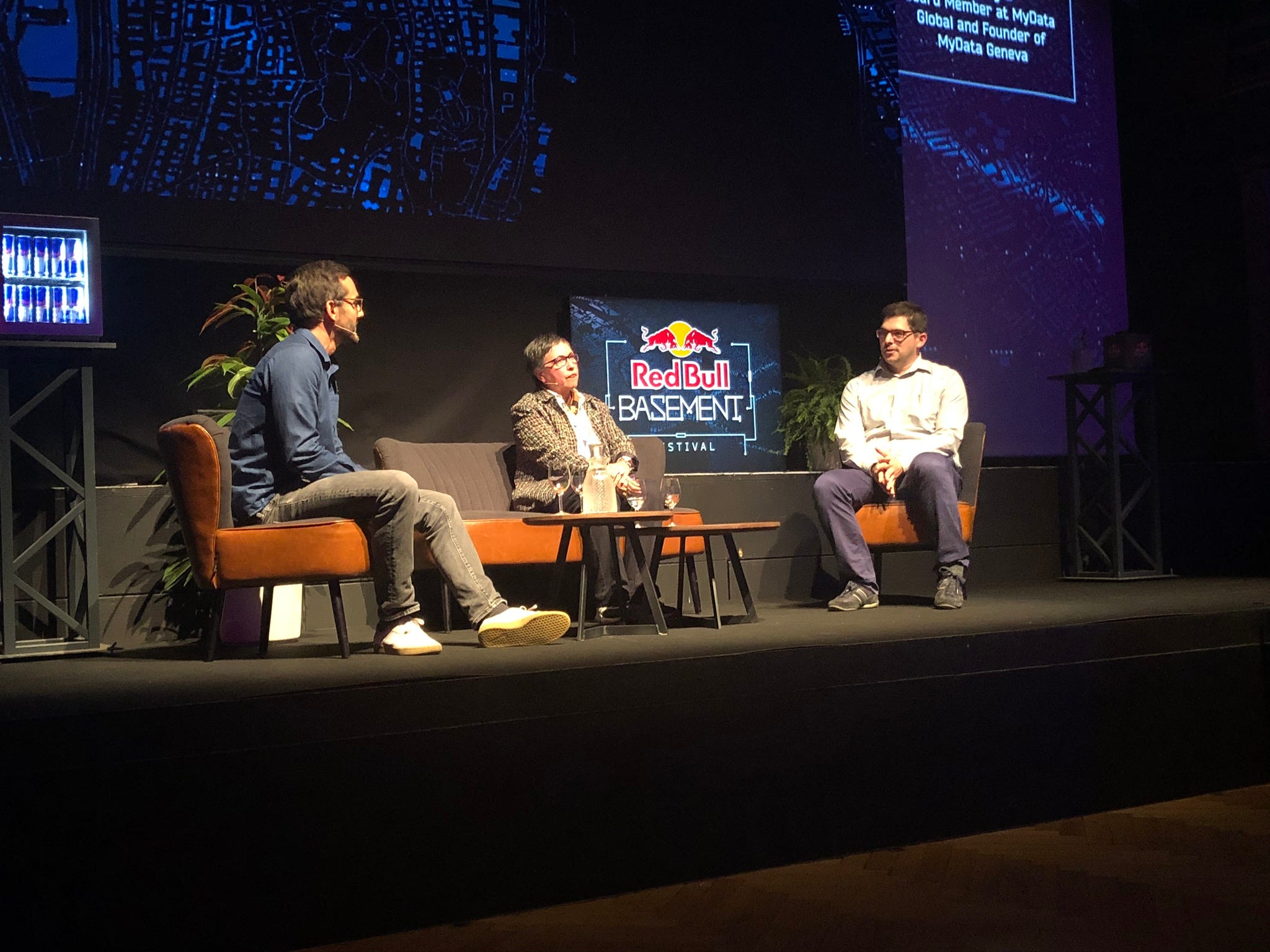
Following Monique’s speech, she and Paul-Olivier Dehaye von MyData were having a brief discussion on data privacy. The announcer asked the audience to show a green or red card on different topics. Not surprising to me was the fact that many people said they care about their personal data, but admitted that they don’t do enough to protect it. The general tone of the discussion was very clear: On one side there has to be more awareness about this topic. I am personally very aware of it and I can decide for myself that I don’t care as much about my data as others. But there are still people who can’t make this decision since they have an extensive lack of knowledge.
“How come, we need to pass an extensive test with classes to drive, but not to use something as powerful as a smartphone” — Monique Morrow
On the other side there sure needs to be more fines involved, when there is a data breach or other cases of broken trust.
They ended the discussion with a Q&A and the note that it is too late to stop using social media platforms and that they are not trying to tell the audience to do so by any means. The discussion was to raise awareness and think ahead about the next steps needed.
Energy Break
I will use this opportunity, to thank RedBull for the fantastic service. There was free RedBull of all kinds, and always someone around to help with your needs. Like this, the energy break was perfect to wake up some and get ready for the start-up pitches.
Start-up Pitches
There were a total of 7 start-ups pitching their idea in 3 minutes to an audience of some investors but most importantly to 3 members of an investing-matchmaking firm. Hence the time limit for the pitches I will try to keep my short descriptions at around 3–4 sentences.
Lyf
LyF Rescue Drone is an idea of a few fellow young men we have talked to before the presentations already. They want to create a portable solution for skiers/hikers/extreme sport athletes, using small drones on each person that can be activated by a colleague, or if the laws can be adjusted, even by the REGA. The drone will be launched by the rescuer and immediately contact emergency services, before scanning the area and sending the coordinates + a model of the area to the first responders. Future buyer options include drone packages or enhancement flash drives for popular drones on the market such as DJI Mavic.
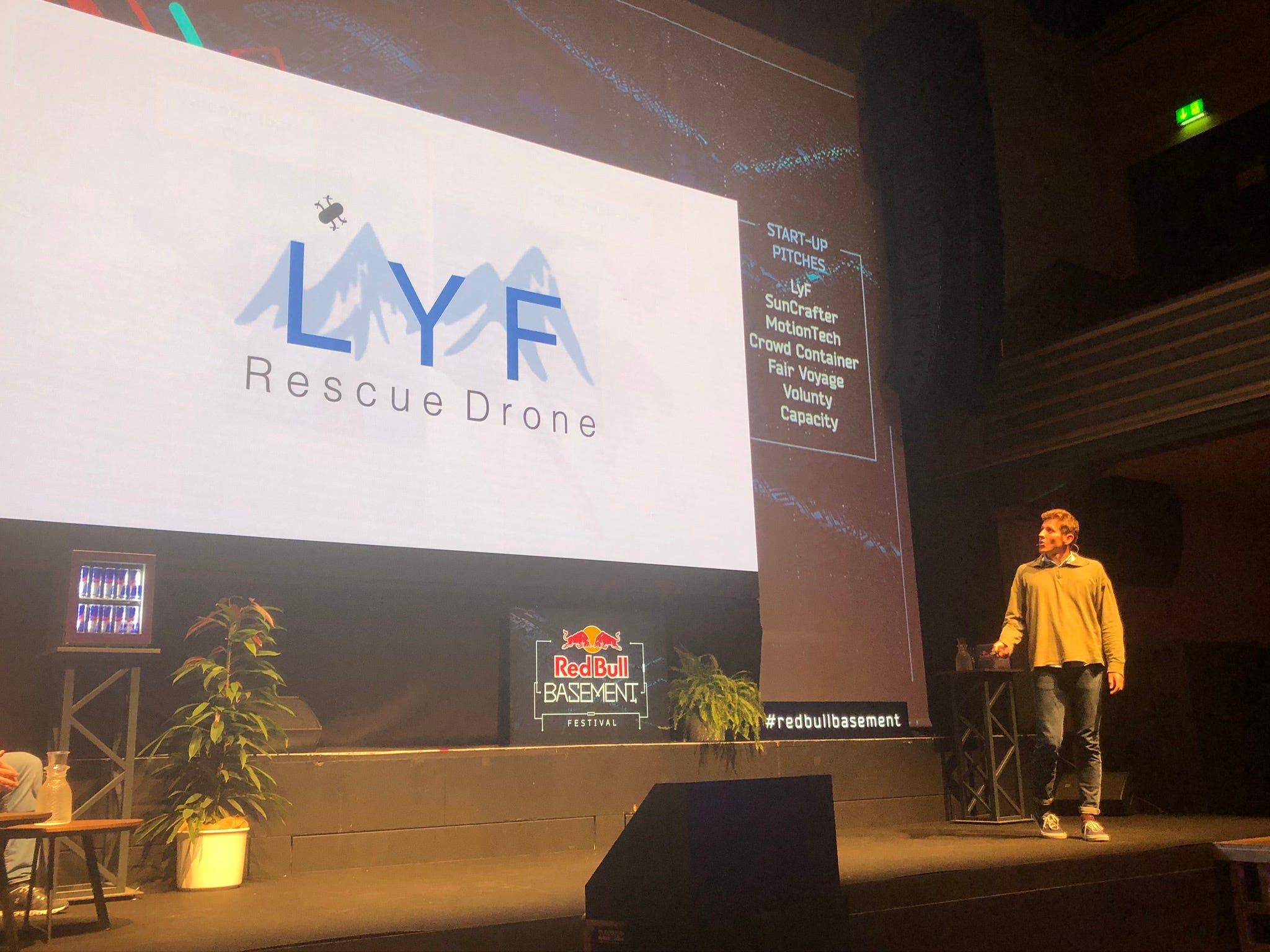
SunCrafter
Another fellow we have talked to at the exhibition provides a concept that could generate a working cycle of funds to provide solar power. The concept: Festival organizers can power parts of the event with portable solar stations that include space for advertising. With the funds generated by brands using the opportunity at festivals, they are setting up solar electricity in villages where people need it the most. Currently, one festival has been enough to provide funds for powering one whole village in Africa or the Amazonas.
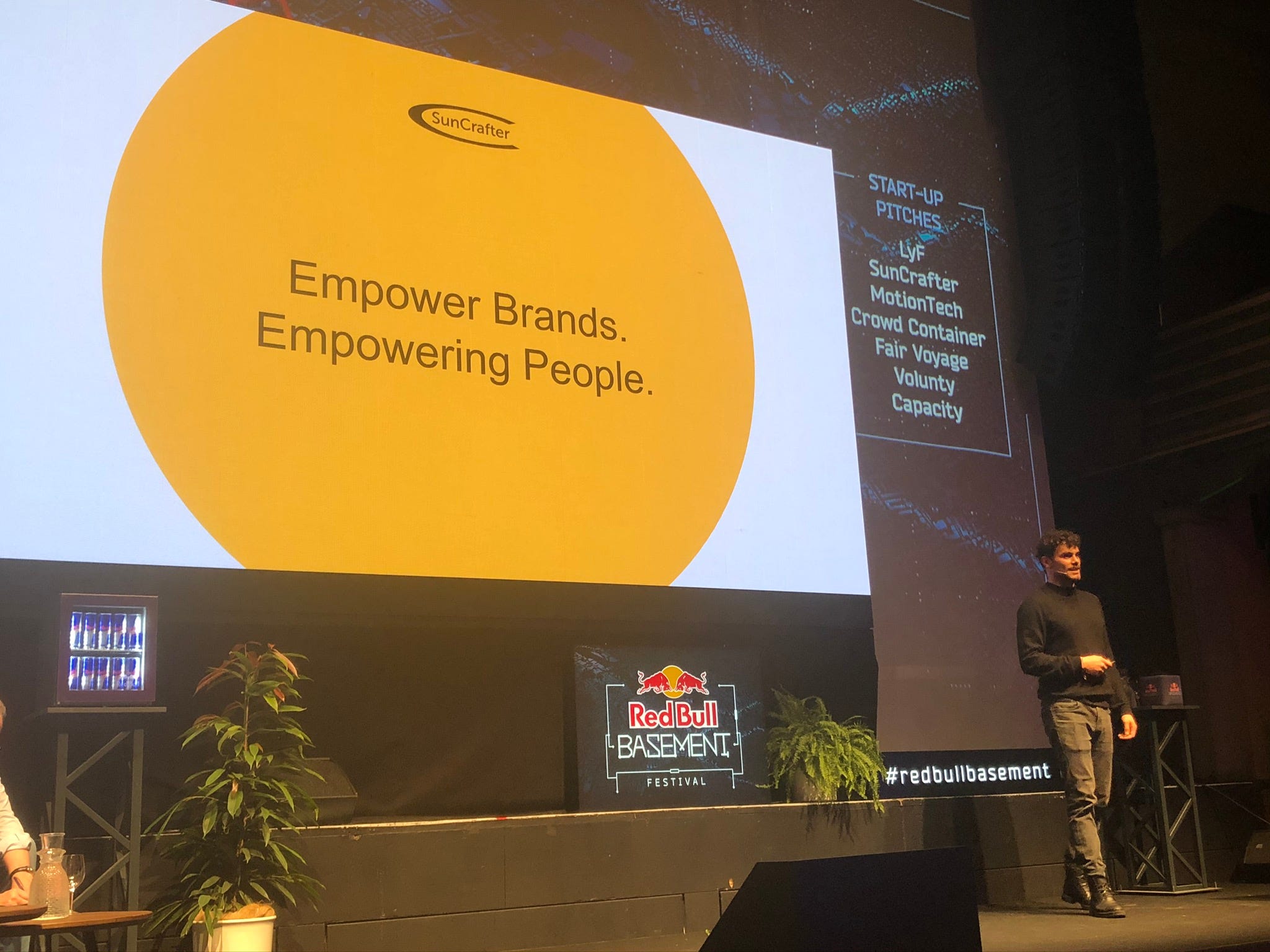
MotionTech
Using a new, soon to be patented, technology, they are able to 3D print silicone products. Their solution allows silicone equipment of any kind to be produced, with the only need being a 3D model scanned with an iPad at the doctor’s office. The model will then be sent to MotionTech where they can print a fitting form at low cost, and avoid prices of over $3000 for personalized equipment. They have rolled out in Switzerland and Belgium and are ready to be expanding to Germany and France soon, which are key markets.
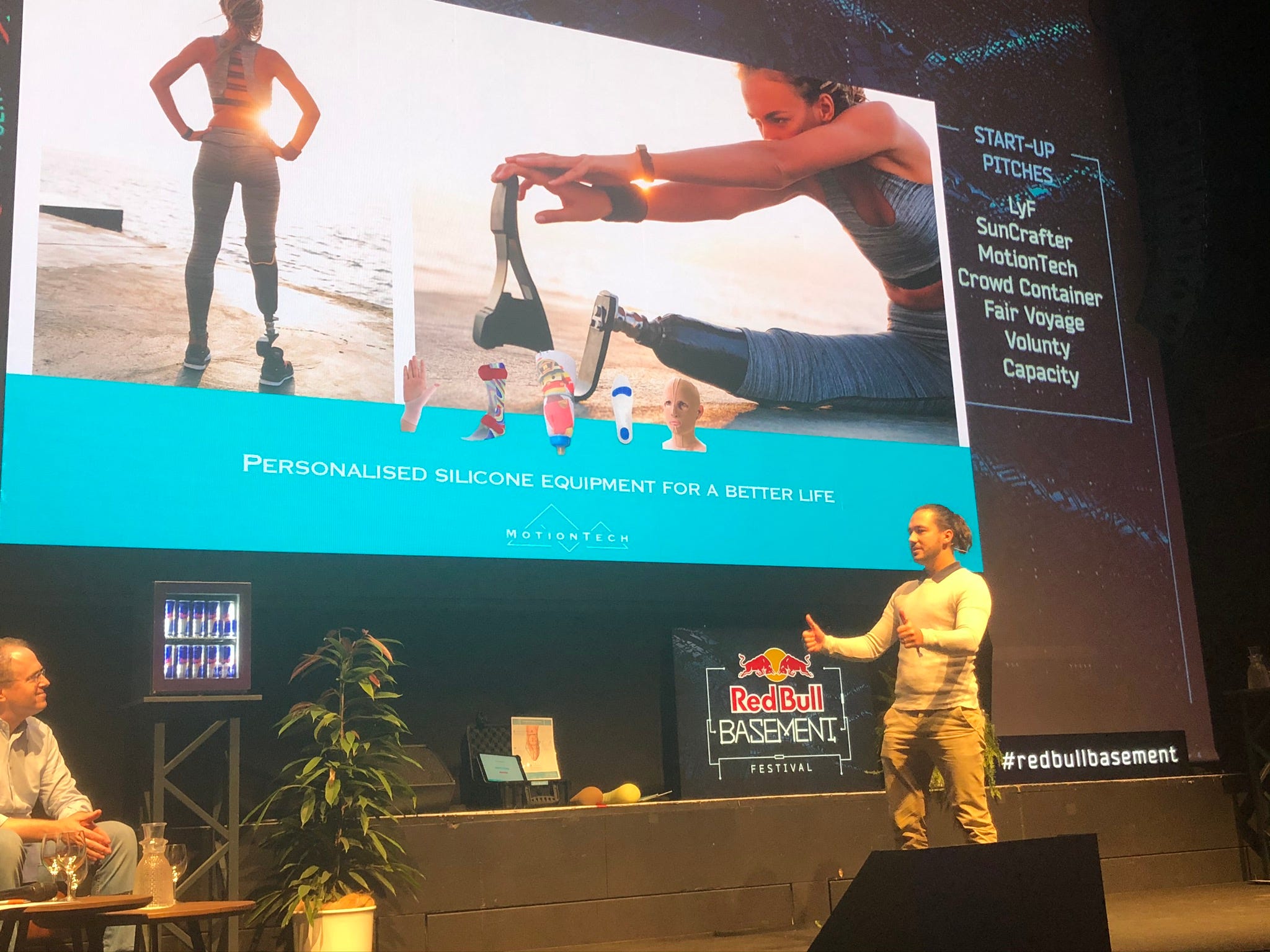
CrowdContainer
Crowdfunding foods and goods is one of the simplest but most interesting ideas I have seen in a long time. There is no store or chain in between, the only thing is CrowdContainer which is making sure the farmers in foreign countries are fairly reimbursed. How does it work? People sign up and order, and when there are enough people who ordered goods to fill a container it will be shipped directly to the consumer. The brand is pretty large already and about to reach 7000 shipments soon.
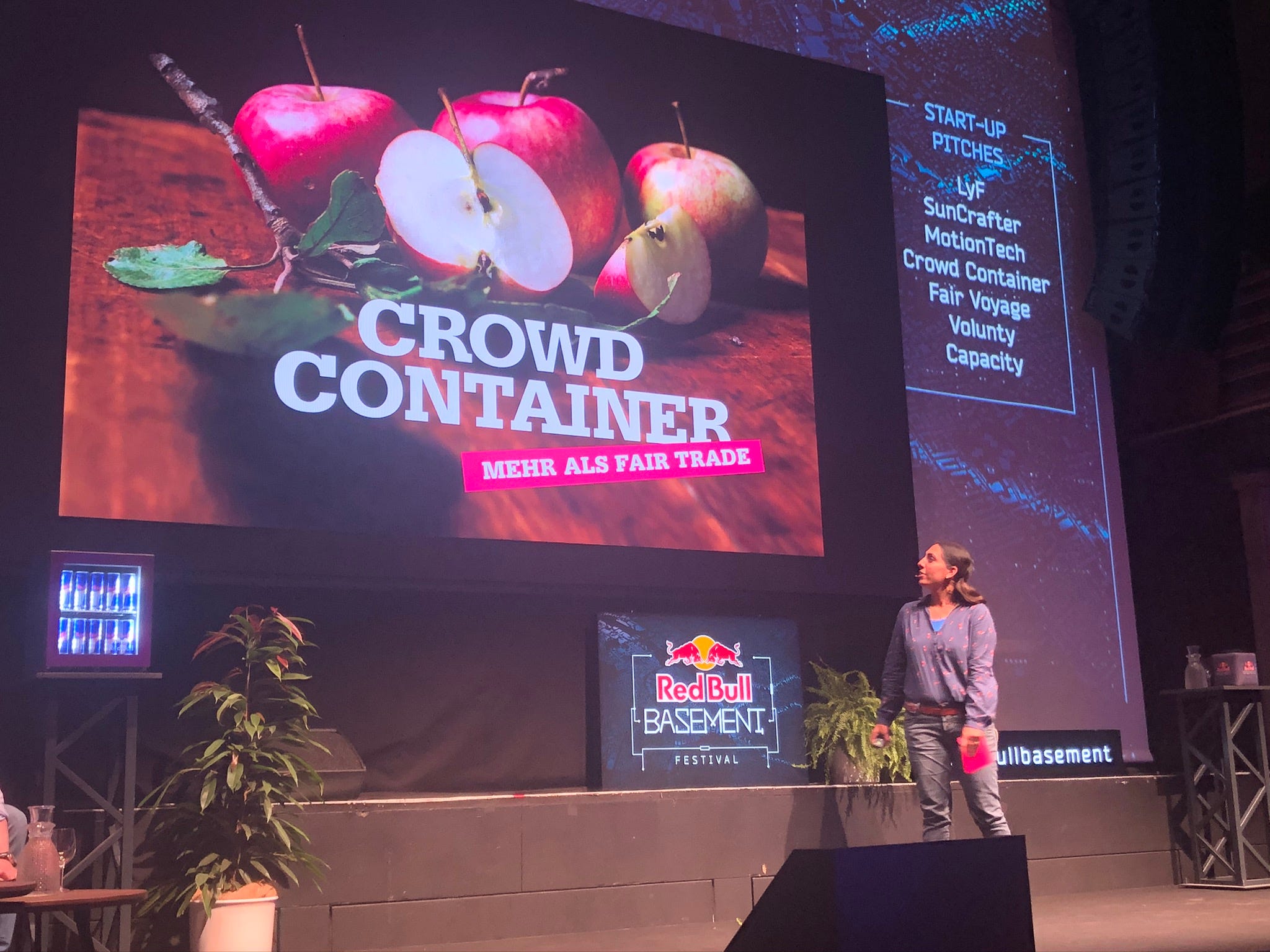
Fair Voyage
“We don’t want to encourage people to travel more, we just want the ones that travel anyways to do it in a sustainable way.”
This was her answer to a question if it might not just be better to stay at home. Fair Voyage is personalizing trips, which mostly include booked activities as a key part of the trip, and does that in a fair and healthy way. They are extremely transparent as a firm, and collaboration with local and foreign experts is key.
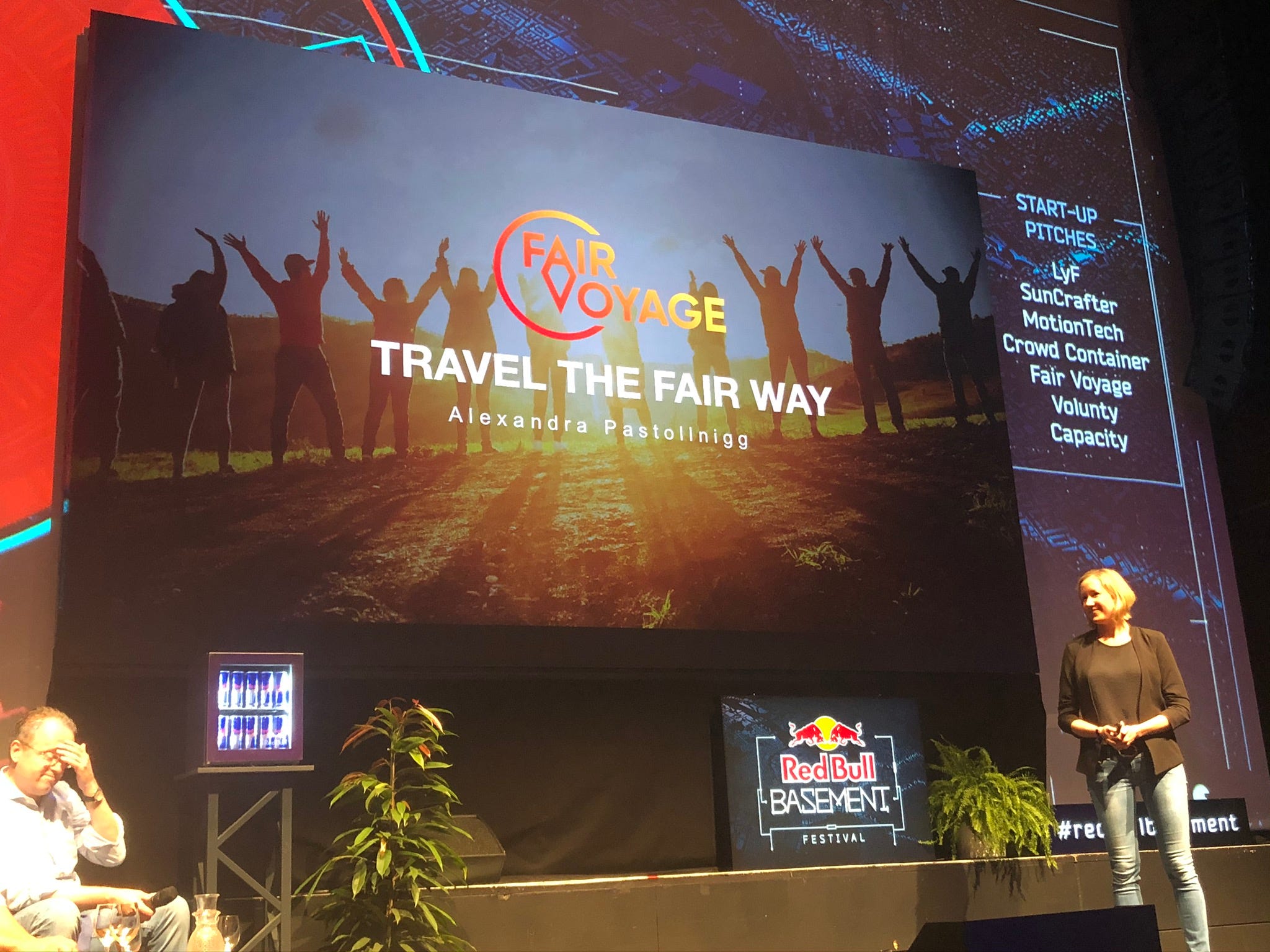
Volunty
Since the next generation of employees will be generation Z and millennials, the folks at Volunty think that the concept of employment and fulfilling workers’ needs has to be redefined. Volunty is a service based on a “Pay-per-employee” plan, that allows companies to do quick surveys using push notifications and not more than a couple of questions. This is designed to analyze and understand the employees happiness in their workspace. I have to take this moment and really compliment the speaker of this pitch on his presentation. With just one slide, that had the company name on it, he managed to pull off the best presentation of the day (in my opinion).
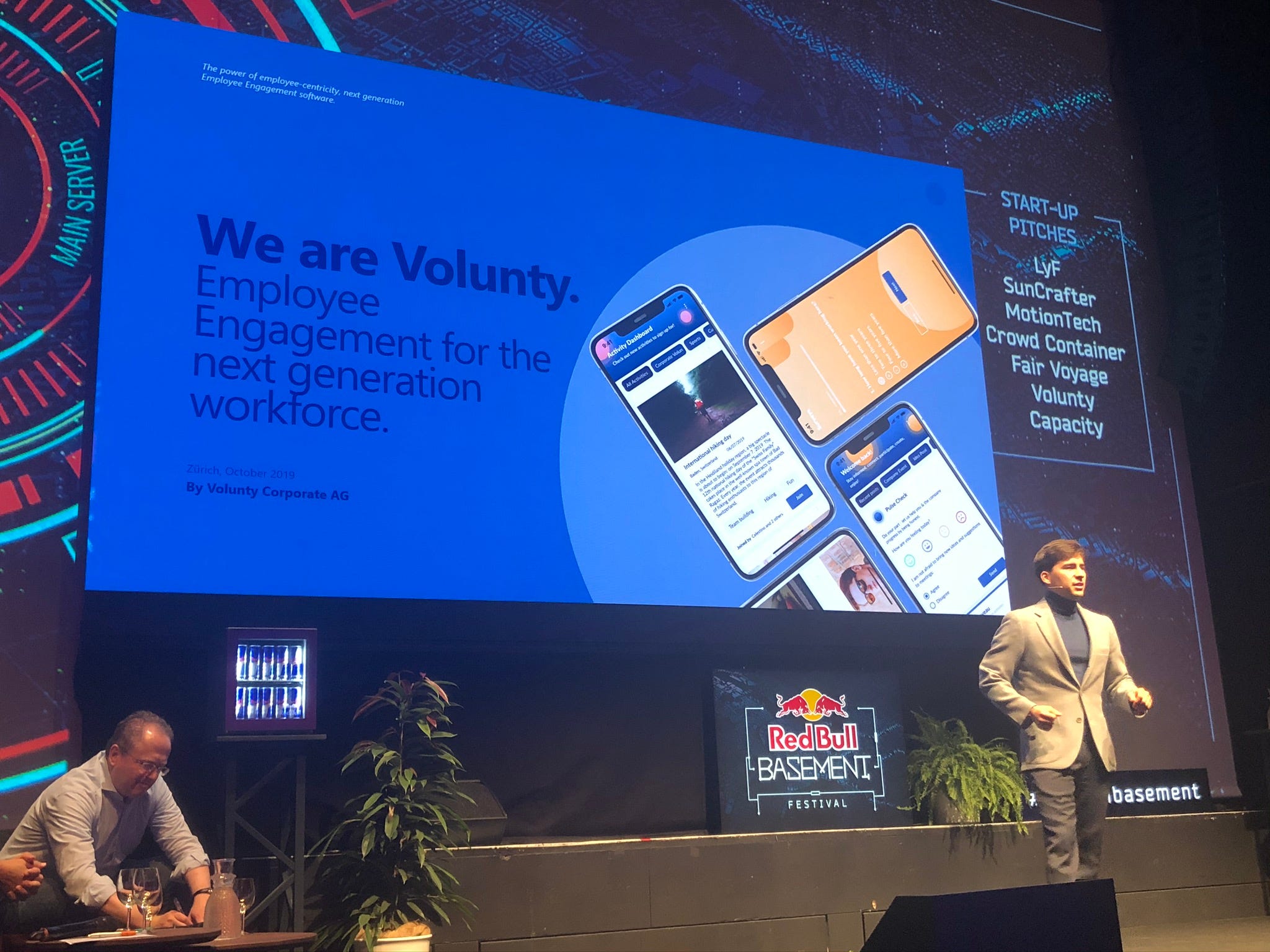
Capacity
Capacity provides an extensive entrepreneurship program for migrants and refugees, which is mainly based on partnership and corporate volunteering. They offer workshops and mentoring/coaching programs together with big firms such as UBS, eBay and Generali. With Capacity Launch they have a very cool program that can help people turn their ideas into reality.
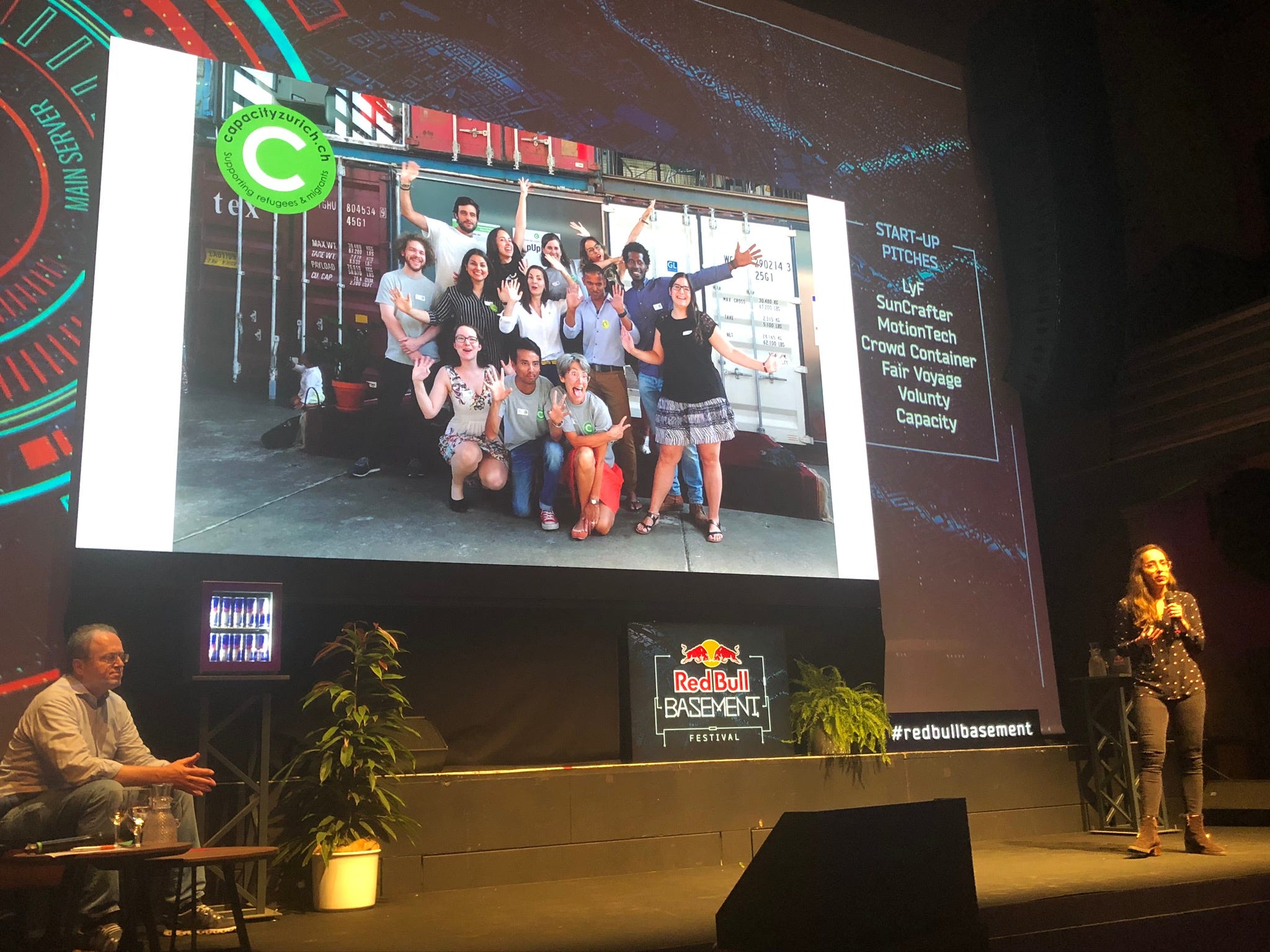
The Last Presentation
How Science and Technology Innovation can be Harnessed to Support Development and Humanitarian Action.
This was the concluding keynote of the evening, presented by Klaus Schöneberger from EPFL Lausanne.
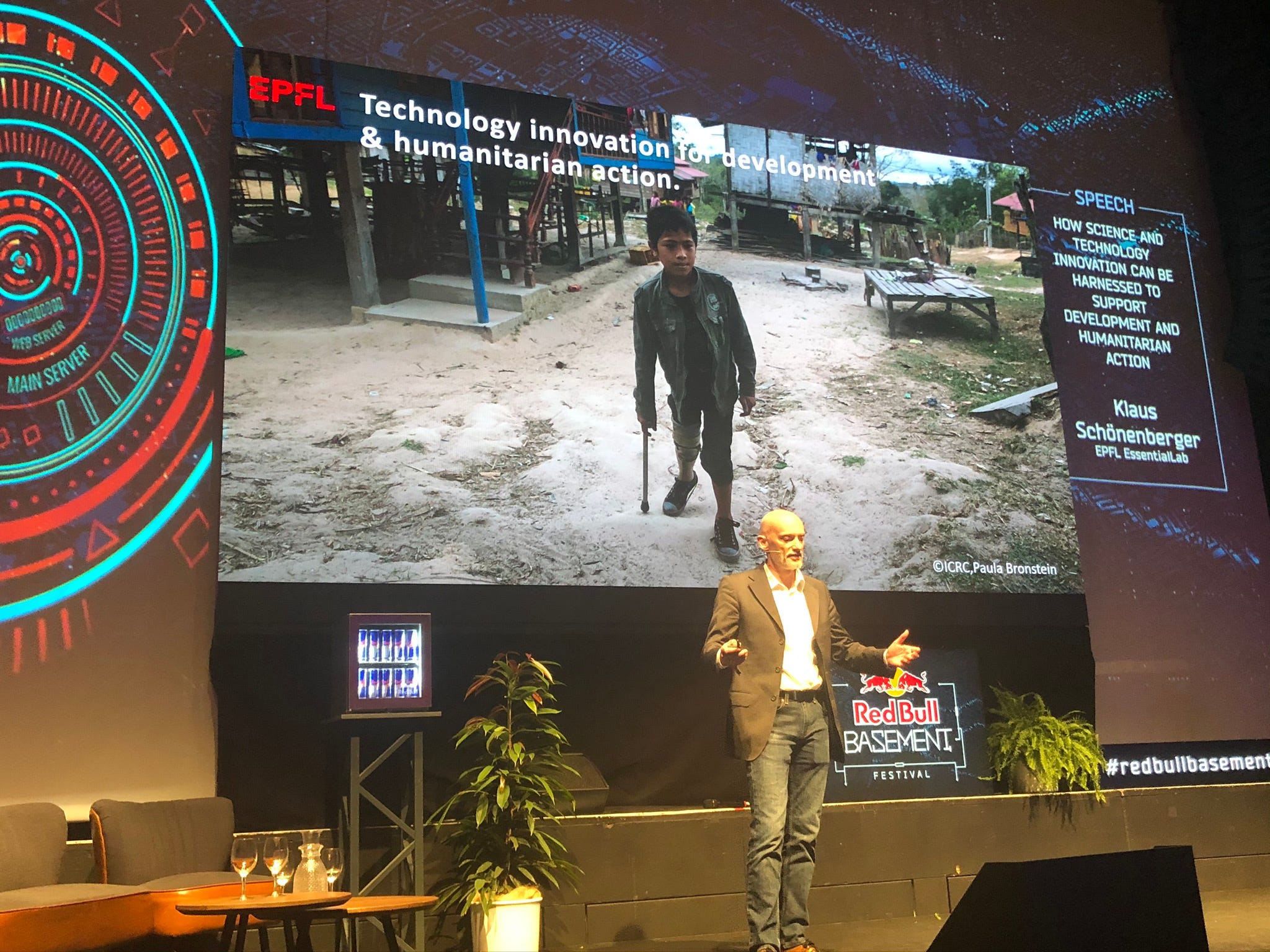
Key parts of this presentation were explaining why the simple inventing and innovating is often not enough. Just the way raising money or donating tools such as EMR machines might just not be the right way to go as they are oft left abandoned and unused. He explained it using the four horsemen of the apocalypse. With that, there are key parts of the economy that cannot be missing, such as funds and a safe environment. For example: Donating an EMR machine to a hospital in Africa might be an even bad idea since the machine uses up the entire energy capacity of the building and ends up being unsafe for everyone involved. He has also worked on different types of gear himself with his EssentialLab, which is supposed to fulfill the different needs in countries of poverty, such as robust and able to survive severe weather conditions and low cost of maintenance. He ended the day with an awesome quote:
“Design it for the rest, and it will be good for the west.”
Conclusion
I would like to thank RedBull, RedBull Events, and the volunteers for organizing the second edition of this cool event in Switzerland. I am hoping to see some faces again there next year!